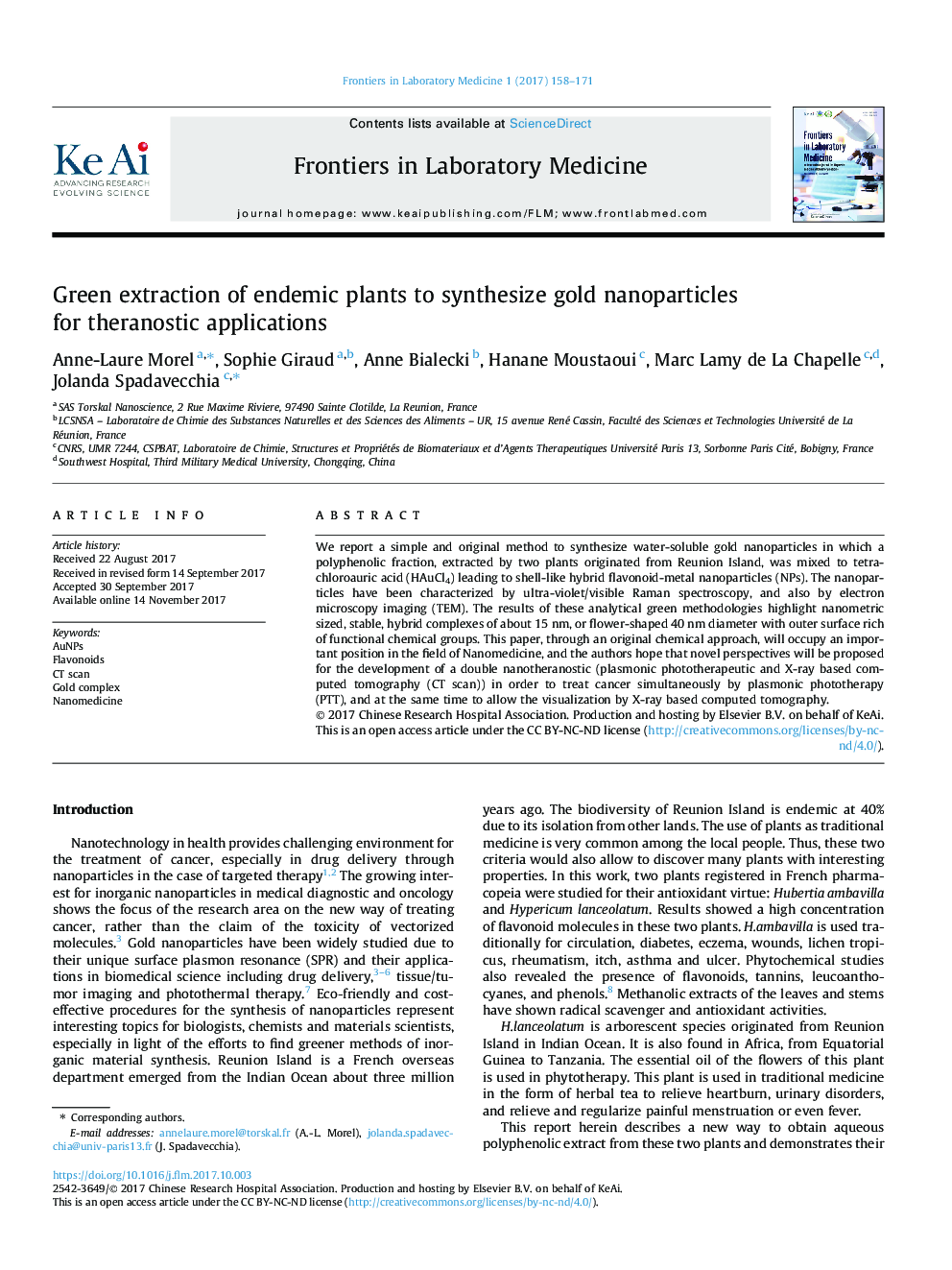| Article ID | Journal | Published Year | Pages | File Type |
|---|---|---|---|---|
| 8921813 | Frontiers in Laboratory Medicine | 2017 | 14 Pages |
Abstract
We report a simple and original method to synthesize water-soluble gold nanoparticles in which a polyphenolic fraction, extracted by two plants originated from Reunion Island, was mixed to tetrachloroauric acid (HAuCl4) leading to shell-like hybrid flavonoid-metal nanoparticles (NPs). The nanoparticles have been characterized by ultra-violet/visible Raman spectroscopy, and also by electron microscopy imaging (TEM). The results of these analytical green methodologies highlight nanometric sized, stable, hybrid complexes of about 15â¯nm, or flower-shaped 40â¯nm diameter with outer surface rich of functional chemical groups. This paper, through an original chemical approach, will occupy an important position in the field of Nanomedicine, and the authors hope that novel perspectives will be proposed for the development of a double nanotheranostic (plasmonic phototherapeutic and X-ray based computed tomography (CT scan)) in order to treat cancer simultaneously by plasmonic phototherapy (PTT), and at the same time to allow the visualization by X-ray based computed tomography.
Related Topics
Life Sciences
Biochemistry, Genetics and Molecular Biology
Biotechnology
Authors
Anne-Laure Morel, Sophie Giraud, Anne Bialecki, Hanane Moustaoui, Marc Lamy de La Chapelle, Jolanda Spadavecchia,
